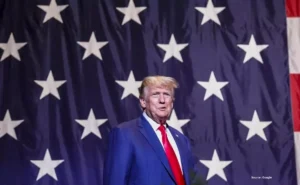China’s Human Rights Record Under Scrutiny: Allegations of Censorship, Surveillance, and Repression
China’s human rights record has been under scrutiny for many years, with the government facing accusations of censorship, surveillance, and repression. The government has denied these allegations, but the scrutiny is likely to persist.
In recent years, several high-profile cases have brought attention to China’s human rights record. In 2019, the United Nations Human Rights Council released a report accusing China of committing genocide against Uyghur Muslims in Xinjiang province. The report further alleged that China engaged in forced labor, arbitrary detention, and torture against Uyghur Muslims.

The Chinese government staunchly denies all the claims made in the UN report. However, the report has triggered calls for international sanctions against China. In 2022, the United States, the United Kingdom, and Canada imposed sanctions on Chinese officials and entities allegedly involved in human rights abuses in Xinjiang.
China’s Human Rights Record in Hong Kong
The Chinese government has also faced criticism for suppressing dissent in Hong Kong. In 2020, it implemented a national security law in the region, which has been used to silence pro-democracy activists and journalists.
Defending China’s Human Rights Record
The Chinese government maintains that it is committed to protecting the rights of its citizens and defends its human rights record. Nonetheless, critics argue that the government’s actions are in violation of international human rights law.

The scrutiny of China’s human rights record is expected to persist. As China’s global influence grows, it will face increasing pressure to improve its human rights practices.
Specific Human Rights Abuses in China
Here are some of the reported human rights abuses in China:
Censorship
The Chinese government heavily censors the internet, media, and other communication channels. This censorship aims to suppress dissent and prevent the dissemination of information deemed harmful by the government.
Surveillance
China operates an extensive surveillance network to monitor its citizens’ activities. This surveillance system tracks dissidents, prevents protests, and maintains social control.
Repression
The Chinese government has cracked down on dissent and political opposition, involving the detention of activists, closure of independent media outlets, and prosecution of human rights lawyers.
While the Chinese government denies all allegations of human rights abuses, mounting evidence suggests otherwise. As China continues to gain power, the scrutiny of its human rights record will likely persist.




Average Rating